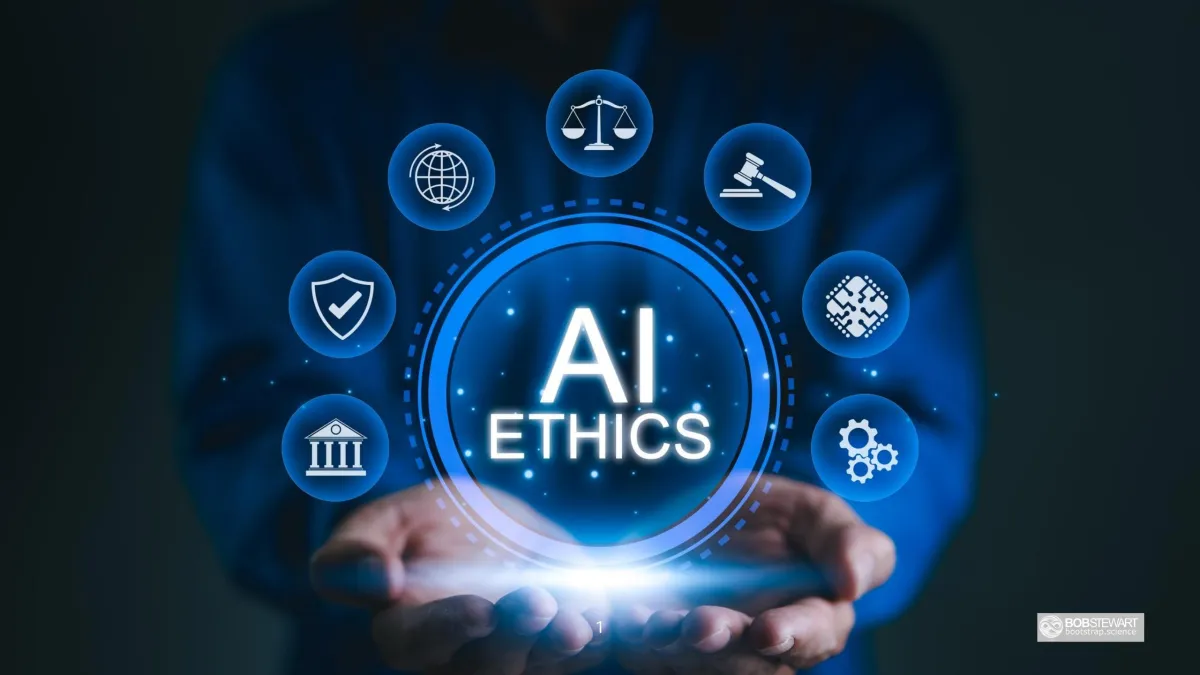Universities and research labs drive the breakthroughs that push AI forward. In this pursuit of knowledge, there is a dual responsibility: foster innovation and uphold ethical standards. From AI experiments that use sensitive data to publications that influence society, academia must integrate governance to ensure research integrity, reproducibility, and societal benefit.
Fostering Responsible AI Research & Innovation
AI-SDLC Institute partners with academic and scientific institutions to embed governance in the AI research lifecycle, aligning with existing research ethics boards, data management plans, and scholarly norms rather than competing with them.
We provide a framework that helps researchers and universities systematically address ethical risks, compliance requirements (like human subjects protections), and reproducibility challenges as part of their AI development process. By adopting our structured approach, academic teams can innovate freely with AI—asking bold questions and exploring new frontiers—while ensuring proper oversight (such as Institutional Review Board (IRB) considerations), data transparency, and safety checks are woven into their projects. The result is research that stands up to scrutiny, is easier to reproduce and validate, and is mindful of its potential societal impact, all achieved without stifling scientific creativity.
Contact us to equip your AI research programs with robust governance that enhances credibility and ethical integrity from day one of discovery.
The Trinity Framework: Three Pillars of Differentiation
We distill AI mastery into three core pillars, ensuring a structured, repeatable path to success:

Leadership → Mission | Purpose | Focus
Research Ethics & Compliance Integration:
We assist institutions in incorporating research ethics checkpoints seamlessly into AI project workflows. This pillar ensures that if an AI project involves human data or subjects, it triggers the appropriate IRB review or informed consent processes just as any biomedical study would. We provide guidelines on applying frameworks like the Common Rule to AI research, clarifying when AI research might count as human-subjects research and how to address privacy and consent. By building these considerations into the AI-SDLC process, researchers address questions of ethics and compliance early—preventing issues like unintentional misuse of sensitive data or overlooked bias that could harm vulnerable groups (IRB Considerations on the Use of Artificial Intelligence in Human | HHS.gov).
Mission – Define the "why" of AI systems, aligning with human and business needs.
Purpose – Ensure AI initiatives are guided by ethical principles and long-term value.
Focus – Drive AI projects with clarity, structure, and accountability.

Certification → Prepare | Train | Execute
Reproducibility & Transparency:
The currency of academia is verifiable knowledge. Our governance approach emphasizes rigorous documentation, version control, and peer-review readiness at each stage of AI model development. Researchers using our framework will, for example, maintain detailed experiment logs, data provenance records, and interpretable model descriptions. We align with emerging academic norms (such as AI research datasheets, model cards, and open science principles) so that when it’s time to publish, the path to reproduce results is clear. This pillar guards against the reproducibility crisis by design—encouraging shared code and datasets where possible, and internal replication of results before claims are made public. In short, we make robust methodology a built-in feature of AI projects, boosting confidence in the findings.
Prepare – Learn foundational AI-SDLC methodologies.
Train – Gain hands-on experience through structured modules and case studies.
Execute – Validate skills through real-world AI project integration.

Execution → Plan | Build | Scale
Societal Impact & Risk Assessment:
Beyond lab results, researchers are increasingly expected to consider the broader impacts of their work. We formalize this by guiding teams to perform “impact assessments” as part of project planning. Whether you’re developing a new facial recognition algorithm or a generative text model, our framework has you examine potential misuse, bias, or harmful outcomes and plan mitigations. This might involve engaging a diverse interdisciplinary panel for feedback (e.g., ethicists, sociologists) or implementing constraints on model release. By treating societal impact assessment as a standard research step, we help academia proactively address concerns (such as dual-use of AI research for nefarious purposes) and document their due diligence. This pillar resonates with the mission of many universities to serve the public good and can tie into grant requirements or ethical guidelines set by funding bodies.
Plan – Develop structured AI-SDLC roadmaps.
Build – Implement AI solutions with tested frameworks.
Scale – Govern and optimize for long-term operational success.
Ready to get started?
Why AI-SDLC Institute?
Academic and research institutions operate at the cutting edge of AI, often venturing into uncharted territory. This freedom is vital for discovery, but it comes with risks: a well-intentioned research project could inadvertently create an AI system that has biases or could be misused once published. In recent years, the research community has confronted numerous ethical dilemmas—Should potentially dangerous AI results be published openly? How to ensure data used in research respects privacy and consent? The stakes are illustrated by episodes like when researchers developed AI that could infer sensitive traits from medical images, raising questions about patient consent, or when a language model trained on internet data began generating toxic content, spurring debates on research disclosure.
There is also increasing external scrutiny. Ethics committees and institutional review boards are evaluating AI projects, especially those involving human data, with greater rigor. A U.S. government advisory committee (SACHRP) recently outlined how traditional human-subject research rules apply to AI, acknowledging broad concerns about bias and harm in AI research (IRB Considerations on the Use of Artificial Intelligence in Human | HHS.gov). Funding agencies and journals now often require statements about the ethical implications and reproducibility of AI research. In short, the norms of research are shifting: doing good science now entails proactive governance.
Who Is This For?
The AI-SDLC Institute is designed by and for:
University AI Labs & Departments:
Professors (PIs), research scientists, and graduate students working on AI and machine learning projects in fields ranging from computer science and engineering to healthcare informatics and social sciences. We support them in managing ethics and governance aspects of their research initiatives.Research Ethics Boards (IRBs) & Committees:
Institutional Review Boards or Ethics Committees at universities that are now encountering AI-related protocols. We provide frameworks and training that help these boards expand their oversight to cover algorithmic bias, data ethics, and AI-specific concerns in research proposals.Academic Leadership & Administrators:
Deans of research, compliance officers, or directors of interdisciplinary AI institutes within academia who are formulating policies for responsible AI research. We serve as a resource to help craft institution-wide guidelines and educational programs by sharing best practices and standards.Research Organizations & Labs:
This includes not just universities but also corporate or government research labs (like those in national research institutes or think tanks) focusing on AI. The governance challenges are similar: ensuring research adheres to high ethical and quality standards.
Academia has faced a “reproducibility crisis” in several fields, and fast-moving AI research is not immune. Without structured practices, one lab’s breakthrough may fail to be replicated by others, either due to opaque methods or unreported context—a gap that weakens scientific progress. Moreover, when academic AI projects do move into real-world application (through tech transfer or startups), any unaddressed ethical issue can become a public issue. Universities also have reputations to uphold; a controversial AI project can draw public criticism or student protest if perceived as harmful (consider past instances of campus debate over AI ethics).
On the positive side, academia has an opportunity to lead by example. Universities can be testbeds for ethical AI development, showing industry what responsible innovation looks like. Already, some universities have established AI ethics centers or require AI researchers to take ethics training. By partnering with AI-SDLC Institute, institutions get a ready-made structure to reinforce these efforts. We help ensure that the brilliant ideas born in labs come with the rigour and foresight needed to benefit society. Governance in research doesn’t hinder discovery—it protects and amplifies it, by preventing avoidable errors or backlashes that could derail a project or even an entire line of inquiry. It also equips the next generation of AI practitioners (today’s students and postdocs) with a mindset for responsible innovation that they will carry into industry or government roles. In summary, strong governance in academic AI research safeguards research integrity, aids in compliance with evolving regulations, and builds public trust in the scientific enterprise at a time when AI advances are both exciting and deeply consequential.
Join the Movement. Lead the Future.
The AI-SDLC Institute warmly invites academics, researchers, and institutional leaders to join our mission of marrying cutting-edge AI research with robust governance. By engaging with us, you join a collegial community that spans disciplines and geographies, all committed to responsible advancement of AI knowledge. We encourage researchers to bring real-world examples from their work—perhaps you confronted a tricky question about anonymizing training data, or you paused before releasing a dataset out of concern for misuse. In our workshops and forums, you’ll find peers who have faced similar issues and thought leaders who can offer guidance (including legal perspectives on research compliance or philosophy perspectives on ethics).
Collaborate on developing open-source governance tools for academia, contribute to white papers that influence policy on AI research oversight, or pilot our frameworks in your lab and share feedback to refine them. As an academic member, your insights can directly shape how our governance model evolves to better fit the nuances of scientific research. We also facilitate mentorship: experienced members who have implemented governance in their projects can advise those just starting to incorporate these ideas. Together, we aim to create a culture in academia where governance is viewed not as a burden, but as an integral component of excellence in research. Join us to ensure that your AI innovations not only expand the frontiers of knowledge but also uphold the highest standards of responsibility and rigor.

AI Research Governance Curriculum & Training:
We offer training programs designed for researchers and students. These can be integrated into graduate seminars or professional development. The curriculum covers practical governance skills: e.g., how to conduct an ethical impact assessment for your AI project, best practices for documenting experiments (for reproducibility), and understanding regulatory considerations (like GDPR implications for research data). Participants can earn a certificate indicating they’ve been trained in responsible AI research practices, which adds value to their academic CVs and signals to funders/journals their commitment to ethical standards.
Advisory for Complex Research Scenarios:
Our experts are available for consultation on particularly challenging cases. If a research lab is unsure how to navigate an issue (e.g., whether publishing a certain AI model might violate any laws or pose excessive risk), we can convene a small panel to advise. This is not legal counsel, but learned guidance drawing on interdisciplinary perspectives from our network. By staying within our service scope, we focus on governance recommendations (like suggesting additional bias testing or proposing phased publication) that help researchers make informed decisions in line with their ethical obligations.
Framework Adaptation for Academia:
Members gain access to AI-SDLC’s research-centric governance templates. For instance, a “Research AI Project Canvas” that helps PIs outline ethics, data management, and reproducibility plans at project start (and which can double as content for grant applications’ ethics sections). We also provide sample language and policies that universities can adopt or modify—such as an institutional AI ethics guideline or a template for an AI research data use agreement. These resources align with what the Institute currently offers (guidance, templates, community expertise) and are tailored to the academic environment.
Academic Consortium & Knowledge Exchange:
Becoming a member in academia plugs you into a network of universities and research institutions focused on AI governance. We host an Academic Consortium within the Institute where members share anonymized case studies of governance in their projects (successes and failures). We also coordinate multi-institution research efforts—for example, a cross-university working group on standardizing AI documentation practices or on methodologies for AI audit in research. Through conferences, joint publications, and an online hub, academics can collectively advance the theory and practice of AI governance. Importantly, all these offerings are framed in a scholarly, non-commercial tone consistent with an academic ethos, focusing on open knowledge and public good.
6+
EVENTS A YEAR
40+
SOPs
30+
YEARS OF EXPERIENCE
2,640+
INFLUENCERS
The Challenges AI Leaders Face
OPPORTUNITIES
Speed to Market: AI-SDLC accelerates deployment without sacrificing compliance.
Cost & Risk Management: Our structured frameworks reduce AI implementation costs and legal exposure.
Safety & Reliability: Proactively mitigate ethical, legal, and technical risks through AI-IRB oversight
Elevate your AI research with a foundation of responsibility and excellence.
Partner with AI-SDLC Institute to weave governance into the fabric of your scientific endeavors. By doing so, you protect your research’s integrity, ease the path to publication and funding, and ensure its positive impact on society. Contact us today to empower your lab or institution with the tools and community to lead in both AI innovation and ethical stewardship. Together, let’s set a precedent for how groundbreaking AI research can be conducted conscientiously, for the benefit of all.
What The AI Leaders Are Saying

OpenAI
The AI-SDLC Institute's commitment to ethical AI governance and its comprehensive approach to training and certification resonate deeply with the current needs of the AI community. Its focus on leadership and structured execution frameworks offers valuable guidance for organizations aiming to navigate the complexities of AI development responsibly."

Meta
The AI-SDLC Institute is a professional resource for AI professionals focusing on the Systems Development Life Cycle (SDLC) of AI and Machine Learning (ML) systems. I think the AI-SDLC Institute has a solid foundation and a clear direction, a valuable resource for AI professionals and researchers."

